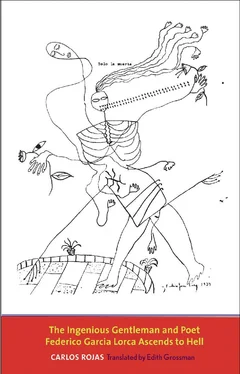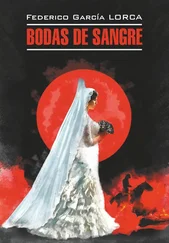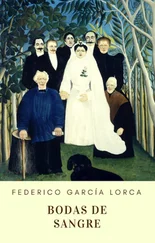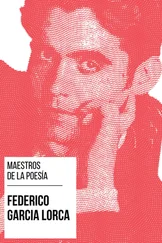“How did you guess? How did you know I was referring to God without my even naming Him?”
“That doesn’t matter now, Commander. Please continue.”
It is he who obeys, nodding, and it is the man of flesh who gives the orders and raises his voice, affected and possessed of an Andalusian accent that so many years of living in Madrid served only to confirm and emphasize, across from the impersonal speech of this man in agony.
“Are you religious?” he asks me, a not entirely unexpected question.
“I am, though I’ve never been observant since I’ve had the use of my reason.”
“I’ve always been observant but was never really religious. I went to church on Sundays because a garrison officer has certain duties in a right-thinking society. I took communion on Easter Sunday because I’d been doing that since I was a boy, in Logroño. I took the name of God, perhaps in vain, in my war speeches in Africa and took it again in Zaragoza when I wanted to persuade the two Civil Guards that the three of us alone had to subdue the Barracks del Carmen. Yet I realize now that when we put down the uprising, I forgot to thank God for our victory. Nothing more, but also nothing less. It’s not much, is it?”
“It isn’t everything. You also fought with God on your own when they gave you the simple red cross and after you saw Sánchez Mejías and me in Madrid.”
“Yes, sir, that’s true too! How did you know? You read me as if I were an open newspaper. I fought with God, that’s the precise expression. When I asked for His reasons, knowing He would never answer, I always called Him Your Excellency, as if I were addressing a case to Him, petitioning for late payments. Does it seem strange to you, does it seem comical?”
“It doesn’t seem anything. Go on.”
“‘Your Excellency,’ I said to Him in Zaragoza, ‘You know very well that few officers would have exposed themselves to this kind of courageous action without guarantees and almost without possibilities of surviving it. I recognize that if they didn’t kill me then, I owe it to Your Excellency, because getting out of that alive and escaping without a scratch when I subdued the rebels alone, with a revolver, is nothing but a miracle … ’”
“Did you stop to think that if you’d been killed, then perhaps the king would’ve awarded you the Laureate posthumously?”
“Of course I stopped to think that! I’m not a man lacking in imagination!”
“Though you can’t manage to understand your destiny on earth. I don’t understand mine either.”
“‘Your Excellency,”’—he continued speaking to the shadows—“‘You granted me life as an ironic act. To oblige me to accept that humiliating bit of charity: the simple red cross. So that once imposed, everyone could forget about me again. At this price, death followed by the eternal remembering of my name would be preferable.”’
“You didn’t have to wait that long because the war made you master of Granada. You’ve entered history through the main door, Commander Valdés.”
“I entered through a door I never wanted.” He takes a square handkerchief from his cuff and wipes the sweat from his forehead (“I have cancer and I’m dying.”) “I’ve killed a good number of men in Africa. Many more than I could count. I never attributed much importance to those deaths because they were all Moors and Moors are inferior to Gypsies in my personal code. Do I shock you?”
“I’m listening.”
“If you had seen the heads of our soldiers in Barranco del Lobo and Annual, cut off with an ax and piled in the sun for the flies, you’d understand me perfectly.”
“That’s possible, though I doubt it. Luis Rosales told me the same Moors are fighting at your side. Do they continue to cut off heads with an ax, following their customs?”
“I wouldn’t be surprised, if they’re permitted to. I was actually getting to that and I’m glad you reminded me. Sooner or later, all our reason for being can be explained in the light of this war. I never, ever believed it would take place, and therefore never imagined myself as governor of Granada. When we were preparing the uprising, we all felt certain the coup would be almost bloodless and the government would fall at a single breath, like a house of cards. Your friend Pepe Rosales was the most optimistic, perhaps because he was the most unthinking. ‘Look, Valdés,’ he said to me during the days of the conspiracy, ‘in no time we’ll be in power and then we’ll establish the National Syndicalist Revolution.’ It bothered me that a rich spoiled civilian, and especially a rich spoiled kid like him, his eyes fried by so much manzanilla sherry, would address me informally as if we were related. I tolerated it only because it was a foolish custom in the Falange. ‘Look Pepe,’ I replied, ‘this matter of National Syndicalism feels like a kick in the stomach to me. I don’t know anything about politics and I don’t understand how we’re going to prevent one revolution only to impose another. I’m in this so Spain can have peace, order, and work. In other words, so the country can move forward the right way, which is with the discipline of a barracks. Forgive my frankness, but all the rest seems like very dangerous chatter to me. If we, the members of the Falange, are going to turn into the Communists of this Spain of ours, I’ll turn in my membership card and that’s the end of it.”’
“But here there’s no peace and no order. And the only work is killing your neighbor.”
“The coup did not succeed either, in spite of Pepe Rosales’s optimism.” He shrugs. “We only have a war to the death that will last longer than I do because it will take years and I’m living on borrowed time.”
“A war that brought you the renown you pursued so intently, and with renown, immortality, though by unexpected paths. Allow me to say it again,” my other self indicates cynically. “You could say that God was ironic with you, but don’t accuse him of being unjust.”
He looks into my eyes again and persists in pressing his palms onto the desk. He seems to murmur something, his very thin lips half open and trembling. One would say that the cancer gnawing at him now follows cardiac arrest: what the old folks from the Andalusian lowlands called a soul attack when I was a boy.
“I don’t accuse Him of being unjust, because I know very well He’s lost his mind,” he mumbles in a very quiet voice.
“I’m sorry, what did you say?”
“I said that God has lost His mind and since the start of the war I’ve never hidden from Him my certainty of His madness. ‘Your Excellency gave me Granada, which I never asked for, and with Granada the duty to defend it against the reds,’ I’ve often prayed to Him. ‘I don’t think I did a bad job, because we took it and they haven’t taken it back. Thanks to Your Excellency, the day also arrived that I had always hoped for: the one when everyone recognized me and said my name with the same devotion as if it belonged to a rich, all-powerful relative … ”’
“Don’t look at me when you speak to God, Commander Valdés. Don’t look at me when you say these things, or I won’t be able to believe you.”
He doesn’t hear me or pretends not to have heard me. His face doesn’t change its impassive expression as his terrifying prayer continues. But he bows his head and contemplates his hands near the edge of the desk.
“‘But at this price, and if I had been consulted first, I’d never have accepted my glory,”’ he continues, his tone of voice immutable. “‘No, at this price, I’d prefer death and oblivion.”’
“What price did you have to pay, Commander?” the man of flesh asks him, as if he actually had become his confessor.
“A price too high in blood and too easy to satisfy,” he says to his hands. “The guarantee of our survival was the death of hundreds of men in three weeks. I’ve blindly given orders, and orders to shoot, and I’ve blinded myself intentionally when I was denounced for crimes committed behind my back by the Black Squads, to settle an old dispute, to carry out personal vengeance, or simply not to lose the habit of killing. Pepe Rosales burst into my office one afternoon … ” His voice breaks quietly and he shakes his head.
Читать дальше












